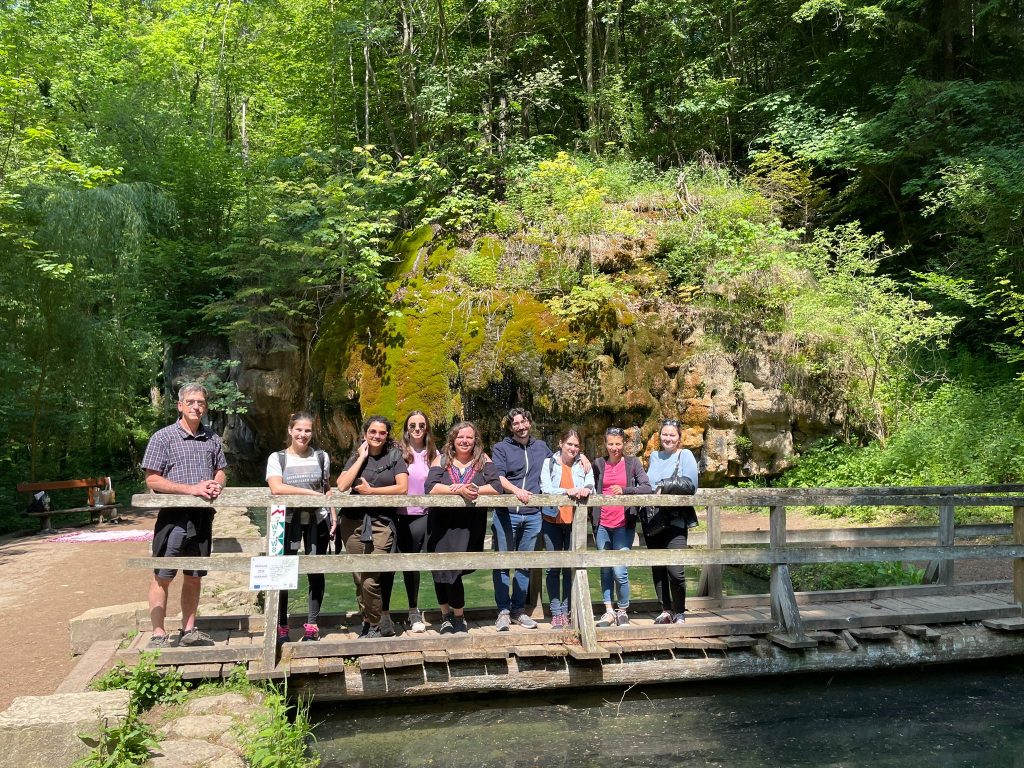In Conversation With Our Young Researchers: Miron Sopić
24 October 2024

(Epi)transcriptomics
In both Europe and worldwide, cardiovascular disease is the leading cause of death and disability, thus understanding the mechanisms that cause it is crucial. At the LIH, Miron Sopić is investigating the links between various RNA molecules, their modifications, and cardiovascular diseases in order to improve treatment.
What role do RNA molecules play in cardiovascular disease, and could a deeper understanding of them enhance, disease management, from diagnosis and prognosis to treatment?
Miron Sopić is a Postdoctoral researcher at the Cardiovascular Research Unit, Department of Precision Health of the Luxembourg Institute of Health (LIH). He joined Luxembourg thanks to a MSCA Postdoctoral Fellowship and COST Action CardioRNA initiative.
Advancing the Understanding of Myocardial Infarction
Miron Sopić’s research journey began in Belgrade, Serbia, in 2007 when he started his PhD. In 2017, he became an Assistant Professor in the Department of Medical Biochemistry at the University of Belgrade. His research focuses primarily on cardiometabolic diseases and the complex interactions between inflammation and metabolic disturbances that drive conditions like atherosclerosis and type 2 diabetes.
Given that cardiovascular diseases remain the leading cause of mortality and morbidity both in Europe and worldwide, understanding these mechanisms is crucial. More specifically, Miron Sopić’s postdoctoral project centers on epitranscriptomics, a relatively new field of study. His current project is exploring whether a specific type of RNA modification, known as m6A (methylated adenosine), can be used to stratify patients with myocardial infarction.

In this area, we are investigating the roles of various RNA molecules, as well as how modifications to these molecules may be linked to cardiovascular diseases, and whether these insights can enhance disease management, including diagnosis, prognosis, and therapy.
Miron Sopić
More broadly, his research interests extend to integrating different layers of -omics data into multiomic models, with the goal of advancing our understanding of cardiovascular diseases.
Research Mobility through Horizon Europe
Miron joined the COST Action CardioRNA, where he connected with Dr. Yvan Devaux, leading to their collaboration on a Marie Skłodowska-Curie Postdoctoral Fellowship (MSCA PF) application. Currently, they continue to collaborate as part of another COST Action, AtheroNET, focusing on the application of multiomics tools to improve cardiovascular disease (CVD) management.

Joing CardioRNA was instrumental in my later success. I reached out to Yvan, and he suggested that we collaborate on an MSCA Postdoctoral Fellowship application. Luckily, this project was successful and brought me to Luxembourg.
Miron Sopić
Translational Researchers
The primary goal of the Luxembourg Institute of Health (LIH) is to bridge the gap between the lab and the clinic, ensuring that findings directly benefit both doctors and patients. At the LIH, researchers are consistently bringing new healthcare products and solutions to market.

We are dedicated to transforming our research into practical tools that healthcare professionals can use to improve patient care.
Miron Sopić
AtheroNET is one of these international networks that supports this interdisciplinary approach. For example, Miron Sopić collaborates with clinicians, scientists, AI experts, patient advocacy groups, and industry partners. This intersectoral approach enables the translation of cutting-edge research from the lab to the clinic, ultimately enhancing healthcare outcomes and contributing to overall well-being.
Luxembourg places a strong emphasis on translating research into real-world applications, particularly through collaboration with the private sector. The country’s research ecosystem is designed to foster innovation and facilitate the commercialization of scientific discoveries.
A Thriving Hub for Cancer, Neurodegenerative, and Emerging Cardiovascular Research
Luxembourg offers a rich and dynamic research environment, supported by excellent teams working across a variety of fields. Many of the research groups focus on cancer and neurodegenerative diseases, making it an especially attractive destination for researchers interested in those areas. The infrastructure and collaborative opportunities in these fields are exceptional, providing a great platform for groundbreaking work.
That being said, while cardiovascular research (CVD) isn’t the primary focus, I would still highly recommend Luxembourg for those interested in this area. There are growing efforts to strengthen CVD research, and joining the local scientific community could provide unique opportunities to contribute to the expansion of this important field.
Miron Sopić
A vibrant community of leading scientists
The research environment in Luxembourg strongly promotes interdisciplinarity and collaboration. Here, Miron Sopić was impressed not only by the cutting-edge research environment but also by the overall atmosphere. The country offers close proximity to a range of excellent research facilities and a vibrant community of leading scientists. This combination makes Luxembourg an ideal incubator for innovative and advanced research ideas, providing a dynamic and supportive environment for scientific growth.
Moreover, Luxembourg’s research infrastructure is both highly advanced and uniquely positioned to support innovative research across various disciplines. The country has made significant investments in scientific infrastructure, with a focus on promoting interdisciplinary collaboration and fostering cutting-edge research.

While Luxembourg may have a smaller research community compared to larger countries, this compact environment fosters close-knit collaborations and a sense of scientific community, which can be highly advantageous.
Miron Sopić












